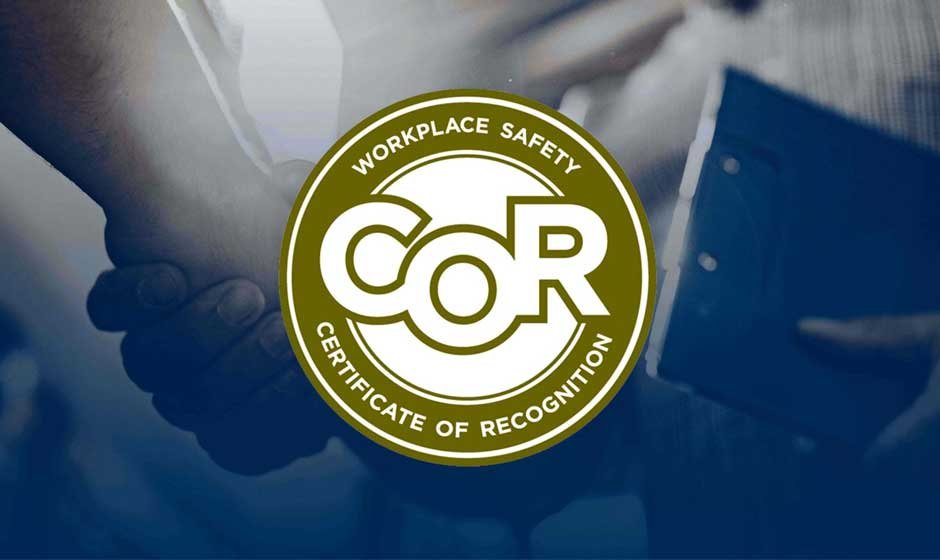Achieving a Certificate of Recognition (COR) is more than just a mark of compliance—it represents a workplace culture that values safety, accountability, and continuous improvement. Maintaining stringent safety protocols is essential in industries where high-risk environments are part of the daily routine. COR certification establishes a structured framework to effectively manage occupational health and safety (OHS). It provides both employers and employees with clarity and assurance that safety standards are being met. We will explore how COR certification influences a business’s safety practices, helping organizations reduce incidents, improve morale, and build stakeholder trust.
Why COR Certification Matters for Workplace Safety
1. Creates a Consistent Health and Safety Framework
One of the primary strengths of the Certificate of Recognition in Ontario is its ability to provide a structured and consistent approach to health and safety management. It is designed to meet nationally recognized standards beyond basic regulatory requirements. This certification ensures companies establish detailed safety policies, regular training procedures, and an internal auditing process. When implemented correctly, it leads to long-term improvements in workplace safety by embedding proactive safety thinking into everyday operations.
Rather than reacting to incidents, certified organizations are trained to anticipate and prevent them. By building an internal system that continuously monitors and improves safety protocols, companies reduce variability in their responses and keep everyone informed of best practices. Employees benefit from knowing what to expect, how to act, and who to report to in various scenarios, creating a culture of accountability and mutual protection. COR encourages a uniform safety culture across departments, ensuring that safety is not department-specific but a shared organizational value.
2. Promotes Worker Engagement and Responsibility
COR certification is not just about the company checking off boxes; it requires the involvement of every employee. To earn and maintain the certification, employees must participate in safety meetings, report hazards, undergo training, and take personal responsibility for their surroundings. This approach empowers workers and fosters a sense of ownership over the safety process. When workers feel responsible for each other’s well-being and are given the tools to contribute, they are likelier to report near-misses, suggest improvements, and follow protocols diligently. This heightened awareness often leads to decreased incidents, as risks are identified earlier and resolved before they escalate. In workplaces without COR, safety initiatives may be top-down directives with limited engagement.
However, the COR framework relies on worker buy-in and engagement as a foundation. Workers actively involved in maintaining a safe environment feel valued and respected, boosting morale and retention. An engaged workforce is also more productive and reliable, knowing their input genuinely matters.
3. Improves Operational Efficiency and Risk Management
Safety and efficiency go hand in hand, especially in high-risk sectors like construction, manufacturing, and transportation. COR certification requires companies to identify potential hazards, assess the likelihood of those hazards, and implement controls to mitigate them. This methodical process significantly reduces downtime caused by workplace incidents and regulatory investigations. Companies with strong safety records are more likely to meet project deadlines and avoid the financial losses from worker injuries, lawsuits, or equipment damage.
Furthermore, safety improvements often lead to process optimization. For example, ensuring proper equipment maintenance not only prevents accidents but also extends the lifespan of machinery and reduces breakdowns. The documentation and assessment components of COR also support better decision-making. Managers can rely on historical data to identify patterns, allocate resources, and train teams more effectively. Companies may struggle to track and analyze safety performance without structured certification, relying instead on fragmented reports or inconsistent observations.
4. Strengthens Brand Reputation and Industry Trust
COR certification is a visible commitment to workplace safety that communicates trustworthiness and responsibility to clients, partners, and the public. Many clients, especially in the public sector, require COR certification as a prerequisite for project bidding. This requirement ensures that contractors meet safety expectations and align with broader organizational values. Companies with COR status are often perceived as more stable and reliable, which can influence long-term business relationships. The credibility associated with COR can also be used as a marketing asset.
Prospective clients and employees are more likely to be attracted to companies that take safety seriously and can demonstrate it through recognized certification. Internally, the credibility of being COR certified boosts confidence among employees and management. It fosters a sense of pride that the company meets high standards and is proactive about maintaining them. A strong brand built on safety and reliability can weather economic uncertainties better than constantly reacting to internal crises.
COR certification is more than an administrative milestone—it signals that a company is serious about safeguarding its workforce and conducting business responsibly. The long-term benefits of obtaining and maintaining COR certification are clear: safer workplaces, stronger employee engagement, enhanced risk management, and greater credibility within the industry. For companies operating in environments where safety cannot be compromised, COR provides a road map for building robust systems that anticipate challenges rather than merely respond to them.










